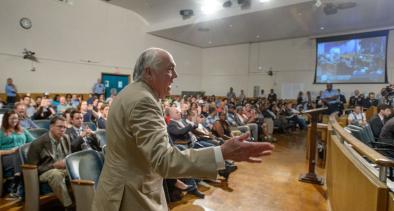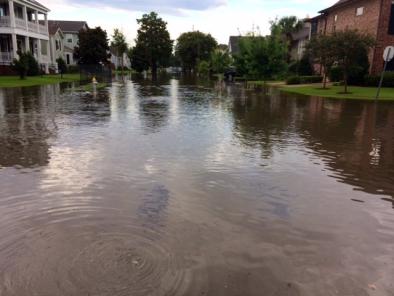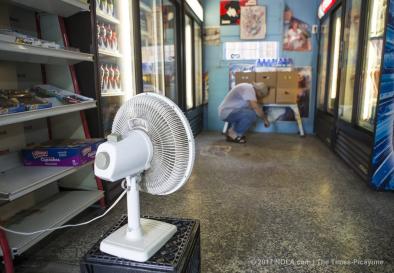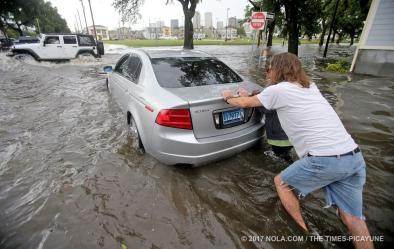Climate Change Compounds Louisiana Flooding Threat a Year After Historic Floods
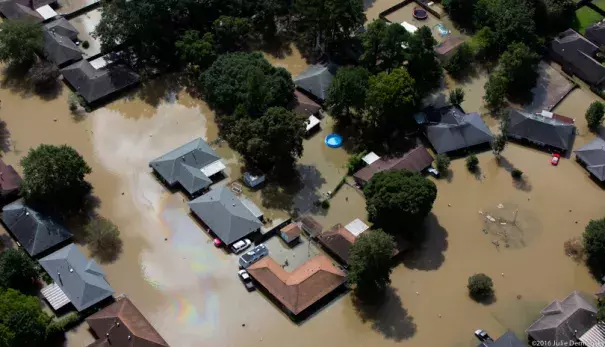
“It was eerie to watch images of New Orleans’ flooding almost a year after the Baton Rouge flood,” Tam Williams, a videographer who lives in Baton Rouge, Louisiana, told me. Every time it rains, she is a bit on edge, wondering if her city is going to flood again.
A week before the anniversary of last summer’s 1,000-year flood in Baton Rouge, rain inundated New Orleans, with more than 9 inches falling in only three hours.
The Red Cross deemed the Baton Rouge flood, which occurred when over two feet of rain fell in 48 hours, the worst in the United States since Hurricane Sandy. It claimed 13 lives and damaged some 55,000 homes and 6,000 businesses.
Louisiana’s excessive rains last year joined a long list of extreme weather events in 2016, which resulted from long-term global warming combined with a strong El Nino weather pattern.
Williams thinks denying that humans are causing climate change is irresponsible. “Whether we want to accept it or not, the way we live has a direct effect on the climate,” she said. “To have people in power, in charge of policy, denying climate change, is crazy to me, even with clear evidence that’s what’s going on.”
Related Content
